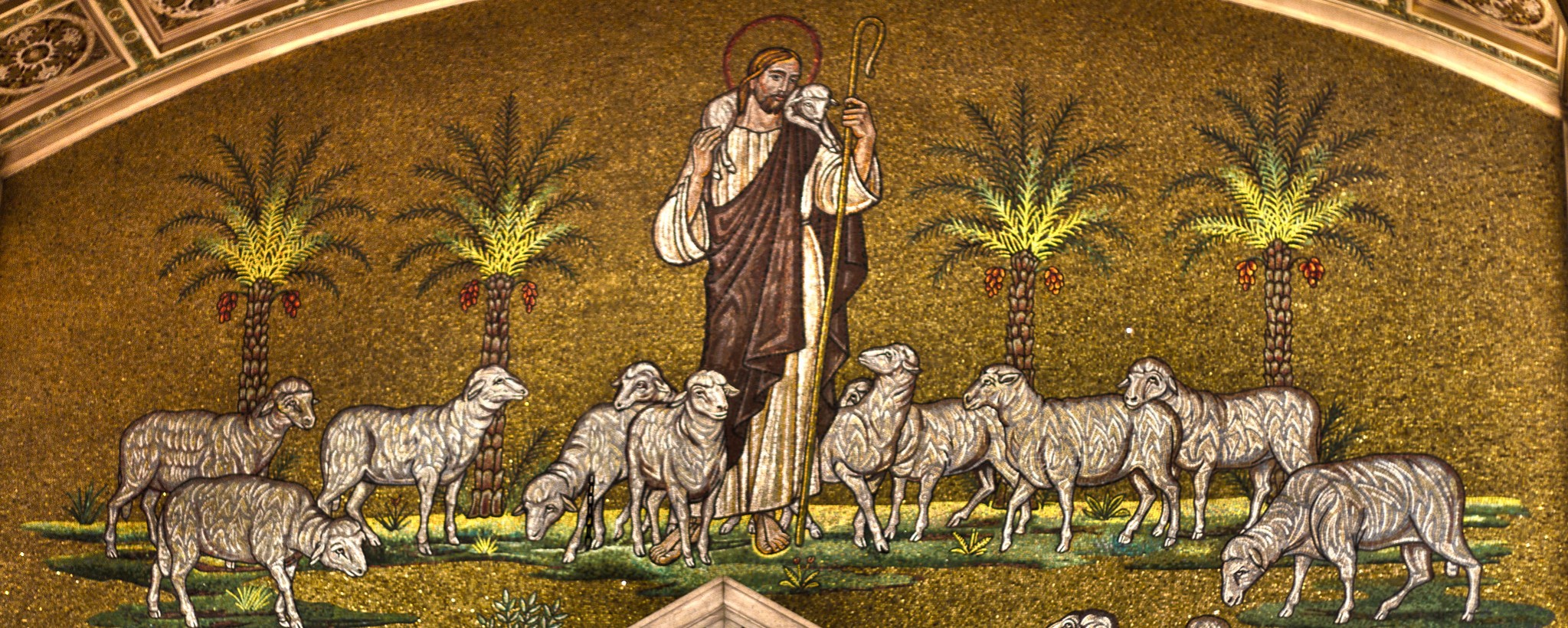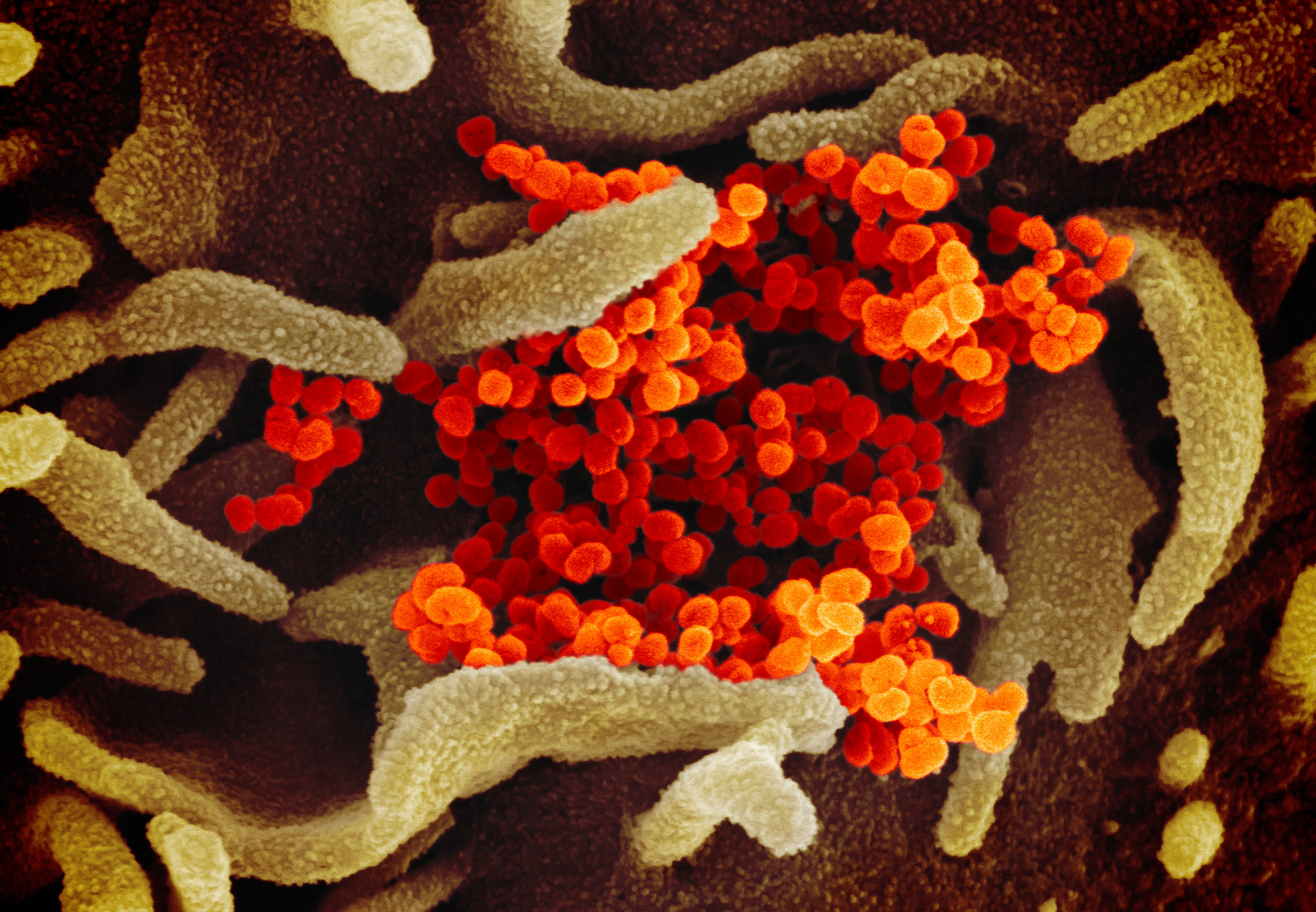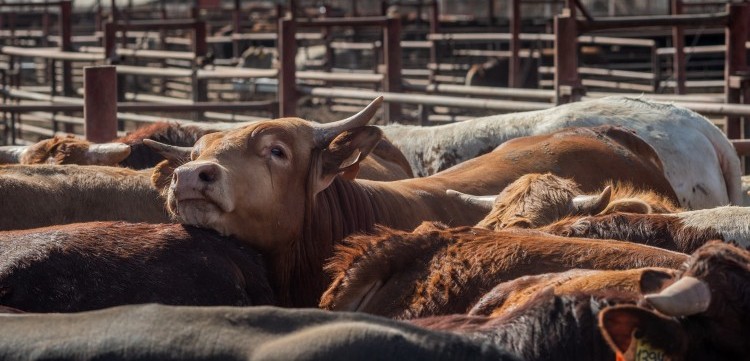You need to log in to post to this user's Wall.
-
Keith Akers wrote a new post, Basic Income and Veganism 5 years, 7 months ago
Systemic, radical changes in the United States are now in the cards. You can feel it in the news and in the streets, even with COVID-19 acting as a damper on protests. But we haven’t had much discussion of what […]

-
Keith Akers wrote a new post, Veganism as a Response to Limits to Growth 5 years, 8 months ago
Limits to growth are now here. Our economy used to work just fine, but it hasn’t been working so well for the past few decades. With limits to growth, it is now not going to work at all.
One failure is our way of […]

-
Keith Akers wrote a new post, Shut Down the Slaughterhouses 5 years, 9 months ago
On April 27th, the Denver Post reported that “5th Greeley JBS worker dies.” JBS is a Colorado slaughterhouse employing 6000 workers. Over 100 JBS employees tested positive for COVID-19, and five have died: four […]

-
Keith Akers wrote a new post, Was Jesus Killed for Opposing Animal Sacrifice? 5 years, 10 months ago
Just before his death, Jesus went into the temple and disrupted the business supporting the temple operations, by driving out all those who were buying and selling sacrificial animals. It was this act which led to […]

- 1 person likes this.
-
It’s unfortunate that the canonical gospels preserve so little clear evidence as to Jesus’ position on animal sacrifice, especially if it indeed played a major role in His teachings and crucifixion. I’ve been puzzling over the issue since re-reading the gospels over Easter. I’d be grateful if you have further insights on any of the relevant passages below.
The incident in the temple appears in all four gospels, as you say, but without explanation as to His motives, and Jesus visits the temple in Jerusalem many times before and after without further incidents recorded of Him intervening to stop or discourage sacrifices. Jesus in fact seems to order a sacrifice when He tells a person with leprosy He has healed to “go, show yourself to the priest and offer the gift that Moses commanded, for a proof to them” (Matthew 8:4). When He says, “Are not five sparrows sold for two pennies? And not one of them is forgotten by God” (Luke 12:6), this can be taken two ways, with opposite implications: that every living thing is intrinsically valuable (potentially anti-sacrifice), or that even the smallest offerings are noticed by God (pro-sacrifice).
It is notable that during the Last Supper, which in three of the four gospels is described as a Passover meal, no overt mention is made of a sacrificial lamb, which would traditionally have been the main course at that time. The only possible reference is Mark 14:12, which says “And on the first day of Unleavened Bread, when they sacrificed the Passover lamb, his disciples said to him, ‘Where will you have us go and prepare for you to eat the Passover?'” Yet there seems to be scholarly disagreement as to whether “they” refers to the disciples themselves having sacrificed a lamb, or rather to the temple authorities and/or mainstream Jewish society. Luke 22:7 uses more passive language, “Then came the day of Unleavened Bread, on which the Passover lamb had to be sacrificed,” indicating what was customary without implying the disciples necessarily participated. Given that during the meal itself, Jesus describes the bread and wine in symbolic language referencing his coming sacrifice, one would expect Him to do the same for the flesh of a literal sacrificial animal were one present. He might say, for example, “By the blood of a lamb were your fathers saved in Egypt, but from now on eat the Passover lamb in remembrance of the Lamb of God, in whom you are saved.” That he instead makes no reference at all to the sacrificial lamb seems either a huge missed opportunity on His part, a startling omission by His biographers, or (the simplest explanation I think) evidence that the meal did not contain lamb at all.
From what I can gather, the absence of lamb at a Passover meal would have been very unorthodox for Pharisees or Sadducees, but typical of Essenes, the third major sect of Second Temple Judaism. Essenes seem to have opposed animal sacrifice and possibly to have been vegetarians or pescatarians, and there seems to be a lot of circumstantial evidence that Jesus was Himself an Essene or at least strongly Essene-influenced. This includes ideological parallels and the fact that while Jesus argued vehemently with Pharisees and Sadducees, no interaction with Essenes is recorded, as might be expected unless Jesus was Himself part of that sect and His membership taken for granted by the gospel authors (until it became forgotten). That Jesus might have celebrated an Essene-style Passover has also been proposed as a way of reconciling Matthew, Mark, and Luke with John, which has Jesus crucified on the first day of Passover meaning the Last Supper must have occurred prior. Since the Essenes followed a different calendar than the Pharisees or Sadducees, they would have celebrated Passover several days before the other two sects. Jesus could therefore have observed an Essene Passover, containing no sacrificial animal, with His disciples, and then been crucified on the day of Pharisee/Sadducee Passover at the same time as they began sacrificing animals, consistent with all four gospels.
Supporting the above theory, the Last Supper seems not to have been Jesus’ only Passover meal not containing lamb. One of His miracles with loaves and fishes was performed to feed a large crowd gathered near the Sea of Tiberias to celebrate Passover (John 6:4-14). While the story isn’t exactly veg-friendly (unless one interprets the duplication of fish flesh as foreshadowing meat replacements / cell-cultured meat), it does show that for Jesus, Passover required neither animal sacrifice nor a pilgrimage to Jerusalem, again more consistent with Essene Judaism than the other two major sects.
Even if Jesus did not perform animal sacrifice (or certain sacrifices) himself, was he absolutely opposed to them, and if so on what grounds? It’s tragic that so little evidence has been preserved, and what is recorded in the canonical New Testament (and what apocryphal material still survives) is largely ambiguous or even contradictory on the matter.
-
Keith Akers wrote a new post, This Pandemic is About Animals 5 years, 10 months ago
The current COVID-19 pandemic is a pivotal event, not just for vegans, but for almost everyone on the planet. There’s a lot that we still don’t know. But there can be no doubt that this pandemic is a con […]

-
The best current theory is that humans contracted COVID-19 from pangolins, not snakes.
-
-
Keith Akers wrote a new post, Is Clean Meat Vegan? 5 years, 11 months ago
By now, many people have heard about “clean meat” — also known as “lab-grown meat,” “cell-based meat,” or “cultured meat,” among other monikers. It’s meat that doesn’t come from slaughtering an animal, but t […]

-
Keith Akers wrote a new post, Was Jesus a Vegan? 5 years, 11 months ago
The historical Jesus, as I’ve argued elsewhere, was clearly vegetarian. To recap: (1) The controversy in the early church over vegetarianism shows that the leadership of the early church promoted vegetarianism […]

-
Keith Akers wrote a new post, The Gap Between Knowing and Believing: Jonathan Safran Foer and Being Not-Quite-Vegan 6 years, 3 months ago
We Are The Weather: Saving the Planet Begins at Breakfast. Jonathan Safran Foer. Farrar, Straus, and Giroux, 2019.
There is now a growing chorus of well-known popular books on the subject of climate change. […]

-
Keith Akers wrote a new post, Reforestation is a Solution to Climate Change, But Not Without Veganism 6 years, 4 months ago
Environmental activists Greta Thunberg and George Monbiot have made a short and excellent YouTube video on forests and climate change. Their thesis: to deal with climate change, we need to eliminate fossil fuels, […]

-
Keith Akers became a registered member 6 years, 4 months ago
